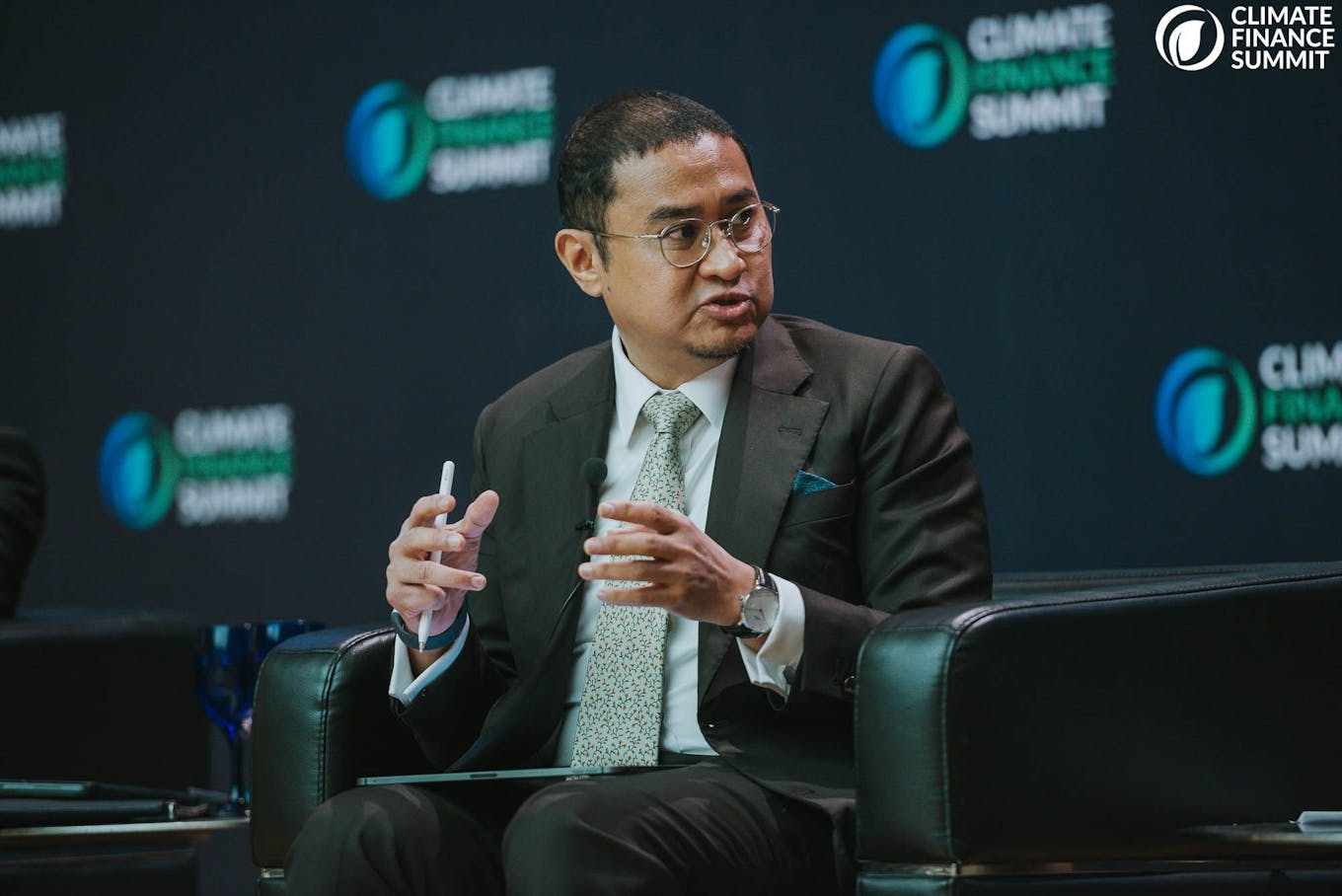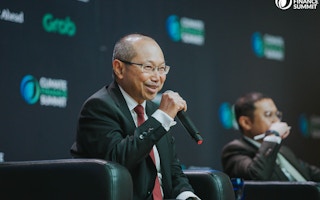Malaysia, which recently lifted a ban on exporting renewable energy, should focus less on selling its raw energy overseas and consider instead how it can use its clean energy capacity to attract foreign investors, said the chairman of the country’s stock exchange operator, Bursa Malaysia.
“We should optimise our natural resources, including renewable energy, to attract investments that will generate greater economic activity but with a smaller carbon footprint,” Tan Sri Abdul Wahid Omar, who is also chairman of conservation group World Wide Fund (WWF) Malaysia, told Eco-Business.
His remarks come two months after Malaysia lifted its export ban on renewable energy, a move that was welcomed by neighbouring Singapore. At the same time, the government announced that it had set a target of 70 per cent for renewables in the national energy mix by 2050, which will require an eleven-fold increase in domestic renewable energy capacity.
“We’re hearing a lot of talk about exporting our renewable energy to Singapore. But with that renewable energy, Singapore will [be the one to] attract good, high-quality investments into their country,” said Wahid Omar on a panel at the recent Climate Finance Summit 2023 in Kuala Lumpur. The summit was organised by the Perdana Fellows Alumni Association, a youth leadership organisation, and United Kingdom’s international fellowship programme, Chevening.
“My request is that policymakers consider how we can use Malaysia’s capacity to generate renewable energy to attract high quality investments that will generate lower-emission economic activity, more jobs and higher value add,” he said.
Speaking to Eco-Business, Abdul Wahid shared that he had observed strong corporate demand for renewable energy in Malaysia, judging from the quick take-up of initiatives such as the government’s Corporate Green Power Programme. Launched in November 2022, the programme is the government’s latest bid to encourage new developments in solar power generation via partnerships between commercial and renewable energy producers. Awards for the 800-megawatt quota allocated under the programme are expected to be announced later this year.
He pointed out how the bulk of measurable emissions for Malaysian companies currently falls under Scope 2, which are emissions from energy used in operations. “Reducing Scope 2 emissions to me would be a quick win, and that has created demand for renewable energy [among Malaysian companies],” he said.
By keeping renewable energy onshore, the government could design policies to attract high value-added industries to the country, said Wahid Omar. An example of such an incentive could include offering a specified number of megawatt-hours of renewable energy to companies operating in these sectors. “We must not attract foreign direct investments, or even domestic direct investments, towards activities that will increase our net emissions,” he said.
Climate policies must precede investments
Fraziali Ismail, assistant governor of bank Negara Malaysia and a fellow panellist at the summit pointed out that global investors looking at Malaysia today are also assessing the country’s climate adaptation and mitigation measures. Before pouring their dollars into domestic activities, they seek indicators that prove that the government is committed to addressing and pushing for broad-based decarbonisation, he said.
“When ministers talk about [things like] the national energy transition roadmap and national energy policy, these are great macroeconomic directions but there needs to be alignment with the other government policies,” said Fraziali.

Malaysia faces the conundrum of being an upper middle-income country that is not rich enough to tackle climate change on its own, but not poor enough to be eligible for international aid, said Fraziali Ismail, assistant governor at Bank Negara Malaysia. Image: Perdana Fellows Alumni Association/ LinkedIn
For instance, Malaysia’s New Industrial Master Plan 2030 (NIMP 2030), designed to guide domestic and foreign direct investments towards specific industrial sectors in the country, must be aligned with national ambitions to boost green investments, he said. The NIMP was first proposed under the previous administration, led by then-prime minister Dato’ Sri Ismail Sabri Yaakob. Following the change in government in December 2022, the new minister for investment, trade and industry Tengku Zafrul Aziz said that the plan would be reviewed, with the revised masterplan to be published later this year.
“We have a situation in which, I would argue, only an investment-led approach will address both sides of the equation: the need for climate action and the need for social development,” said Professor Dr Jomo Kwame Sundaram, visiting fellow at Columbia University and senior advisor to the Khazanah Research Institute, who was also at the climate finance summit.
However, this investment-led approach must be front-loaded and led by the public sector, given the urgency of addressing climate and development issues, said Jomo.
“We need governments to take responsibility and to lead. I suggest that it is public investments that should be ‘crowding in’ private investments, which are otherwise not going to act on their own,” he said. The world’s poorest countries should also be assisted via international cross subsidisation, especially in bypassing fossil fuels and transitioning immediately to clean energy, said Jomo.
As an upper-middle income and yet still developing country, Malaysia is ineligible for much of the international aid made available to lower-income developing nations to fund its own response to the climate crisis, Bank Negara Malaysia’s Fraziali pointed out. As an oil producer, Malaysia continues to rely on fossil fuels for energy and its economic activity, with the government recently affirming its commitment to using gas as a transition fuel.
However, Malaysia can leverage on its relatively high level of national savings, which amount to some 30 per cent of gross domestic product, and its sophisticated financial system, which includes established local and international financial institutions, he said.
Malaysia needs an estimated 500 billion ringgit (US$110 billion) to address climate adaptation and mitigation, and some 60 per cent of these funds are “commercially viable”, or profitable without the need for government assistance, explained Wahid Omar, citing figures from a 2021 report produced by WWF-MY and the Boston Consulting Group. More than 350 billion ringgit (US$77.1 billion) of private capital can be unlocked using market regulations such as disclosures and reporting mechanisms, the report said. This includes renewable energy such as solar, which being highly lucrative in Malaysia, has attracted competitive funding activity in both equity and debt markets, said Wahid Omar.
Another 25 per cent of required climate financing can be raised via carbon markets, said Wahid Omar, a sector in which Bursa Malaysia is spearheading developments via the establishment of the Bursa Carbon Exchange and engagements to facilitate carbon project development in the country. That leaves 15 per cent of funds which will require government support or the contribution of multilateral institutions, he said.
“My view therefore is that [securing the billions of ringgit needed for climate action] is not insurmountable. From a bigger-picture perspective, it [the 500 billion ringgit Malaysia needs to finance climate action] is only about one per cent of GDP. It can be done,” said Wahid Omar.










